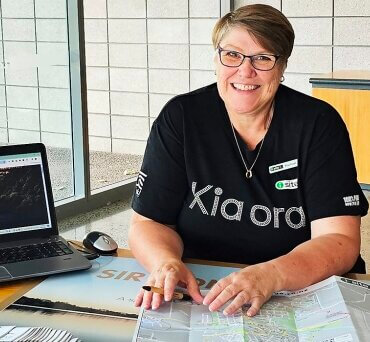
Rachael Colgan
The importance of events at Karāpiro to the Waipā economy have been well illustrated by unofficial retail foot counts and accommodation bookings taken during the Waka Ama championships last week.
Cars, vans and coaches with waka strapped to the tops provided visual evidence that more than 3200 paddlers from clubs around New Zealand, the Pacific and even the United Kingdom were in the district.
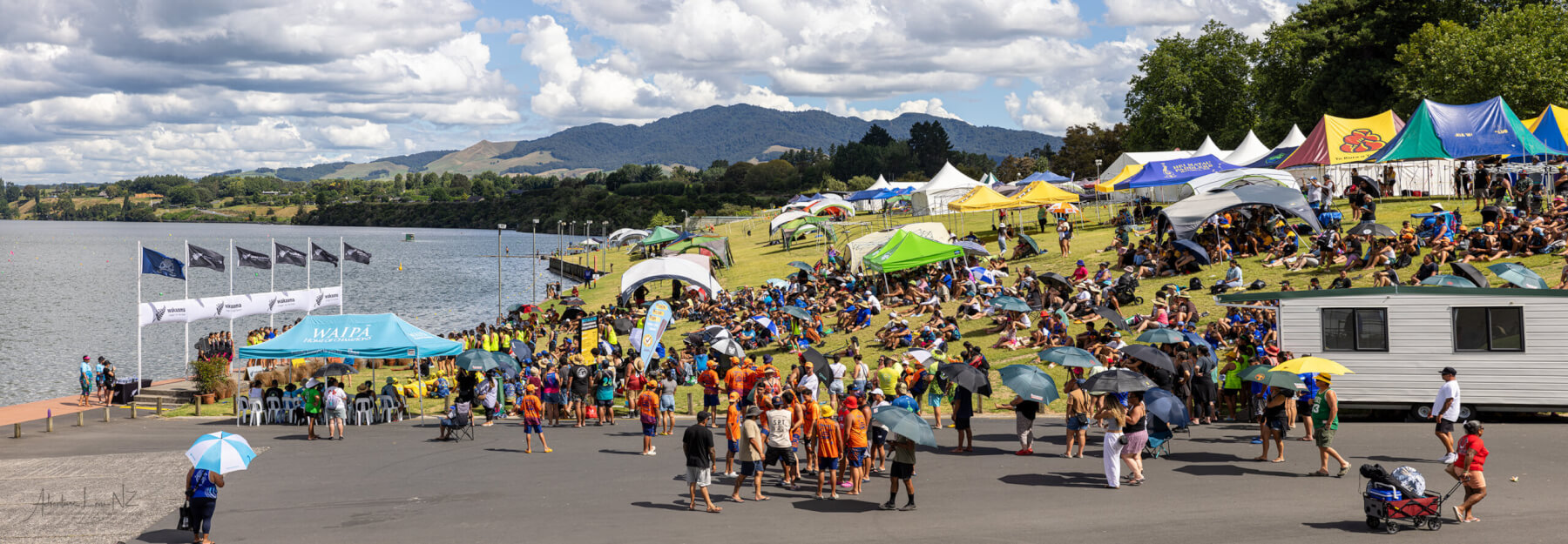
Waka Ama nationals 2024. Photo: Andy Thompson

Ruth Crampton
And as Karāpiro site manager Liz Stolwyk and her team waved goodbye to them on Sunday, preparation was underway to welcome another 2500 competitors and their supporters for the three-day North Island Rowing Championships starting Saturday.
Destination Cambridge general manager Ruth Crampton said her team provided a pop up i-Site at Karāpiro on the first day and then saw a stream of visitors in town looking for something to do away from the water.
Twenty days into the month, nearly 10,000 visitors had come through the i-Site doors and 75,000 people visited the CambridgeNZ website.

Kelly Bouzaid
When a couple not associated with the waka ama came in mid-week looking for accommodation, staff contacted 12 accommodation outlets before finding them something.
Cambridge Chamber of Commerce chief executive Kelly Bouzaid said foot counts the chamber subscribes to showed a slack start to the year but last week was a hot one.
A counter in Victoria Street picked up more than 17,000 people last week, up three per cent on last year.
“A lot of (local) people are still on leave so those are encouraging signs,” she said.
The foot count was just as high in Leamington with retailers and cafes reporting waka ama supporters shopped for supplies in big numbers, said Bouzaid.
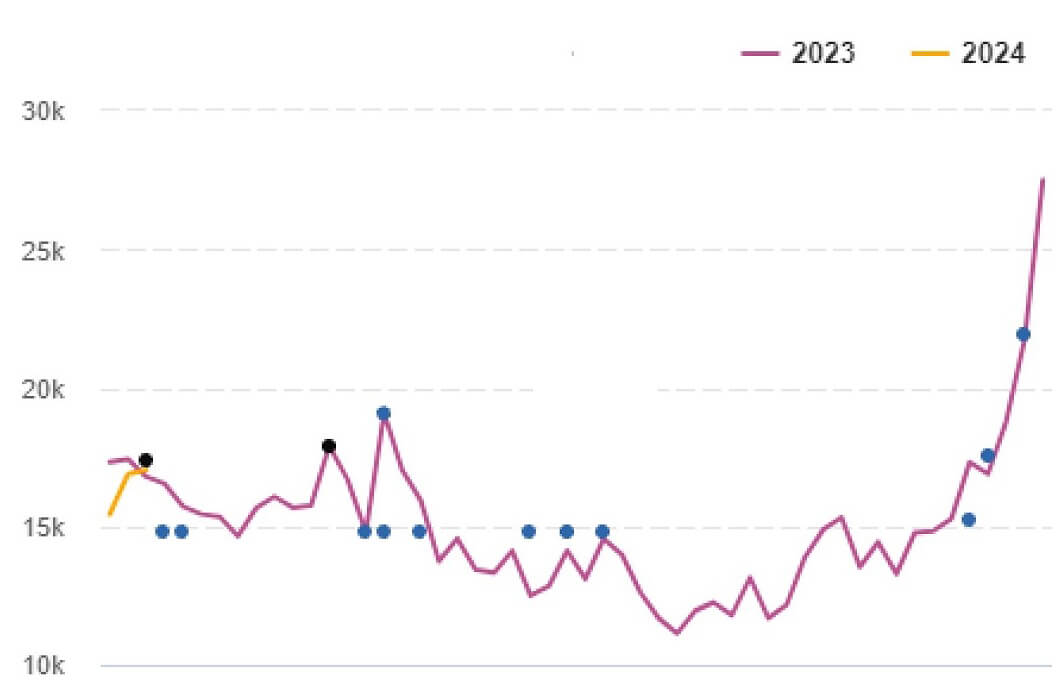
Foot counts in Cambridge CBD last year and the first three weeks of 2024. The blue and black dots represent events.
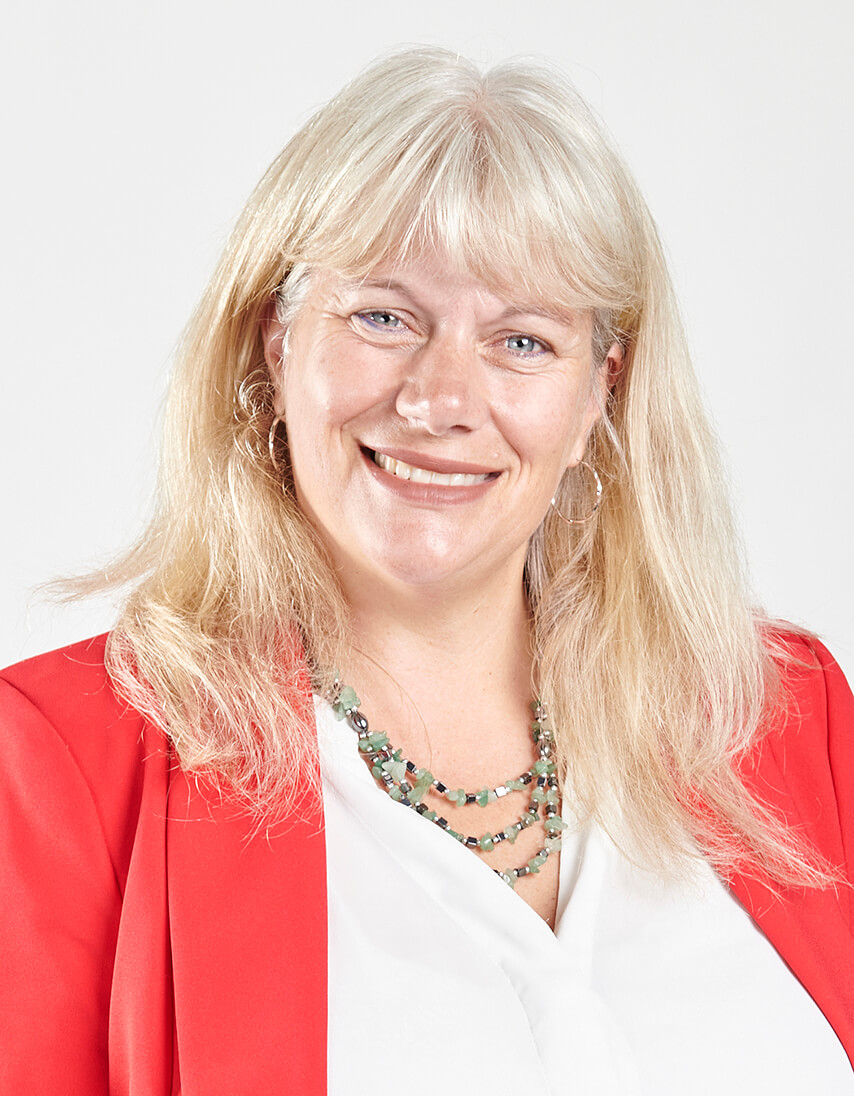
Liz Stolwyk
Fruit and vegetable retailer Avi Gill, who owns shops in the CBD and Leamington, said it was busier than last year.
“It’s a great cultural event and we love that it’s happening at Lake Karāpiro and feeling very proud to be part of it. I love to see them every year putting their hard work together. (It’s) a great community event.”
Other retailers reported they saw little or no extra activity through their doors.
Stolwyk said her information from Cambridge and Te Awamutu was similar but “these people live and breathe and work in these towns” and they could see the evidence.
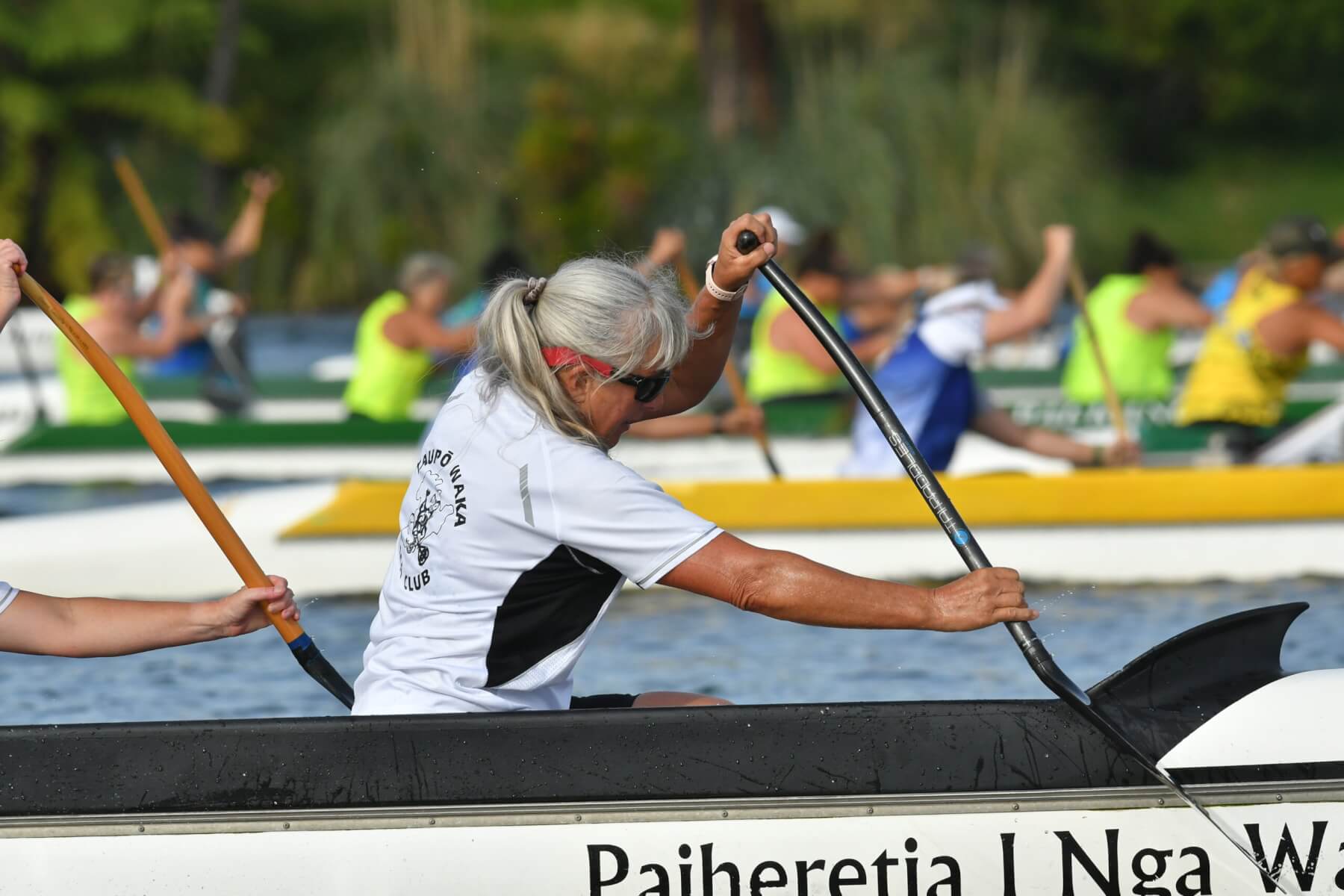
WakaAma Sprint Nationals 2024. Photo: Garrick Cameron.
“I love it when you see a car with a waka on the roof and there were plenty of those.”
The impact of week-long events like waka ama was “really hard” to measure.
A decade ago, the council looked at Eftpos transactions as a guide.
“But that doesn’t measure the benefit to clubs as an example,” she said.
Competitors and supporters stayed at other places, like the Hautapu and Leamington clubs.
Stolwyk, who is also Waipā’s deputy mayor, said the $15,000 allocated to waka ama from the council’s district promotions fund was “money well spent”.
Sporting events in the district can apply for funds. Black Friday Blowout in Te Awamutu and the Rangiaowhia 160-year commemoration got $12,000 and $10,000.
But it was newer events the district fund hoped to help attract in the future, she said.
See: Waka Ama success celebrated
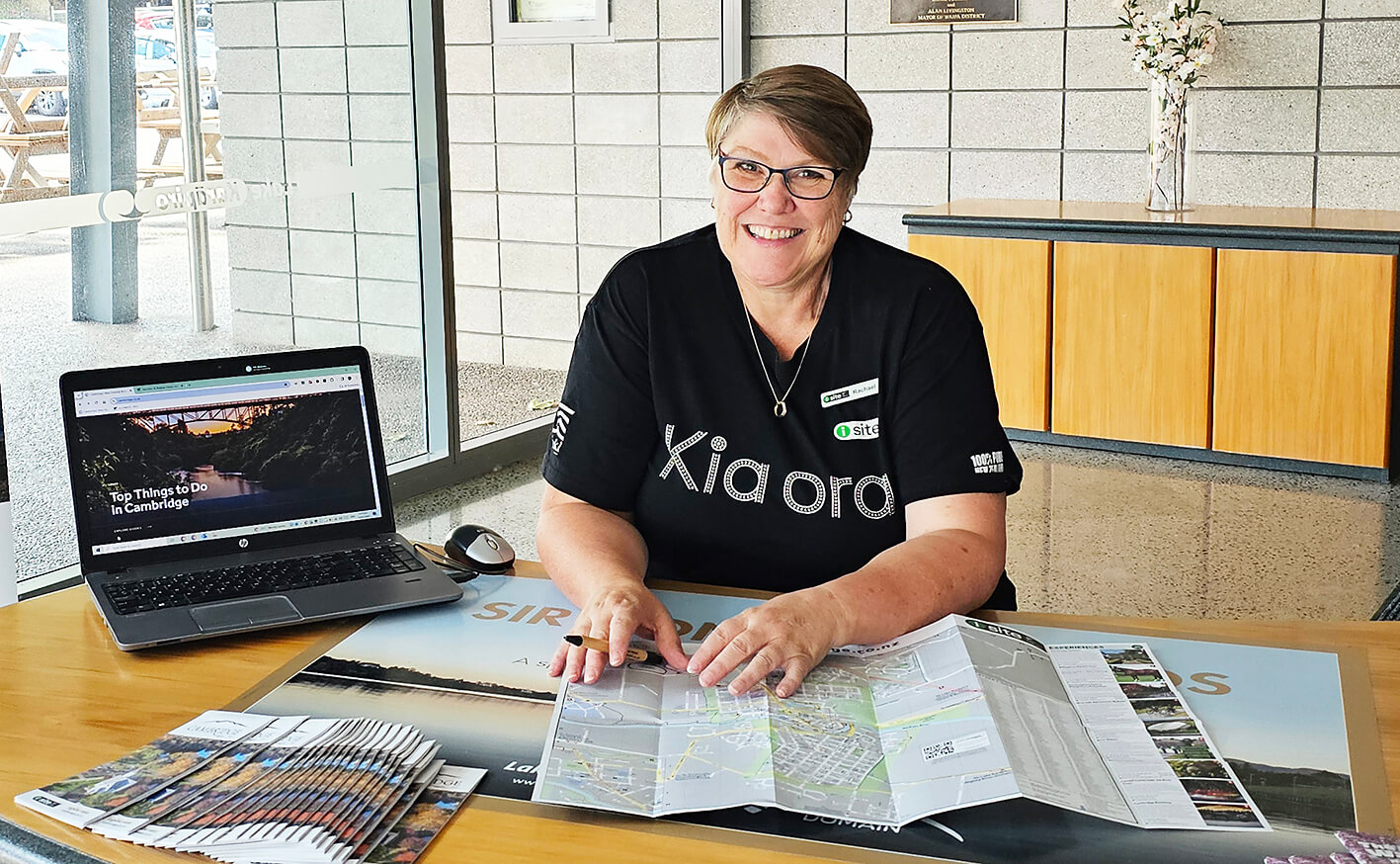
Destination Cambridge’s Rachael Colgan ran a pop up i-Site at Karāpiro for waka ama organisers as part of a service the organisation provided event organisers to Waipā. Photo: Mary Anne Gill.








